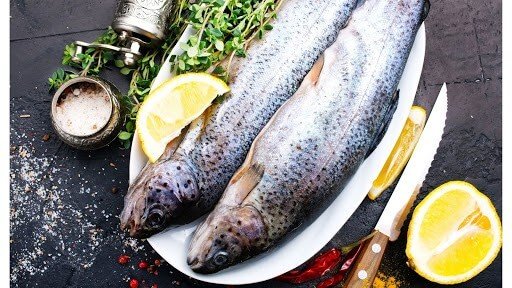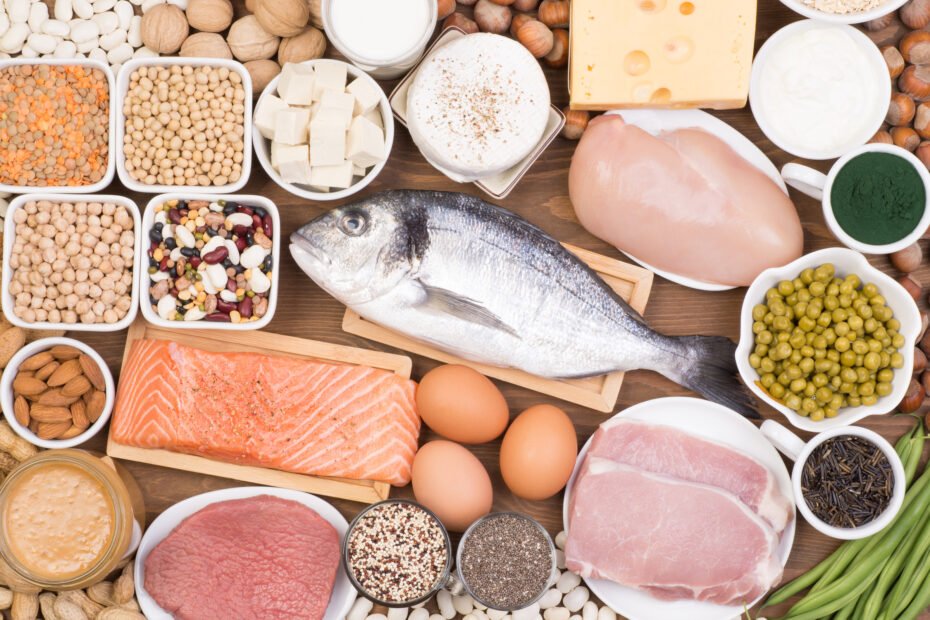
Fish is a rich source of protein and omega 3 fatty acids, but it may not be the best option for those with kidney disease.
If you have chronic kidney disease (CKD) or any other type of renal impairment, consider limiting your intake of certain types of fish to reduce the risk of further complications.
First, it’s important to note that the following information is not meant as medical advice. Speak with your physician before making any diet changes or starting new medications due to kidney disease.
We all know that fish is a healthy choice for our diet however, some fish can be difficult for those with renal impairment to digest properly without triggering inflammation in their kidneys.
The following paragraph will highlight the top 5 fish that are both healthy and delicious!
- Tuna – This type of fish has approximately 8 grams of protein per 3 ounce serving. It also contains omega-3 fatty acids which can help reduce inflammation in your body and improve blood circulation.
- Moreover, tuna is high in selenium which helps protect against skin cancer cells. Another pro about this type of fish is that it contains very few calories per serving.
- Salmon – This type of fish is high in omega- fatty acids, vitamin D and protein. It also contains selenium which can help protect against cancer cells as mentioned above.
- The only downside to this type of meal would be that it has a lot more calories than some other types but if you are looking for a filling meal then salmon might just fit the bill.
- Shrimp – A little bit different from most common fish choices, shrimp still provide many benefits such as being high in protein and low calorie content per serving (approximately 12 grams). Shrimp offers another nutritional benefit not found naturally in any other food; choline.
- Choline provides protection against liver disease by helping metabolize fat stored inside your body’s cell membranes.
- Tilapia – One of the most commonly eaten fish in America, tilapia is a good option for those with kidney disease. Tilapia has high levels of protein and low levels of saturated fat which can help lower your cholesterol and weight if consumed on a regular basis.
- This type of fish also provides selenium which aids in fighting against cancer cells though it does contain more mercury than other popular types such as salmon or trout so you may want to limit intake by no more than two servings per week
- Cod – An excellent source of protein, cod is a perfect option for those with kidney disease. The bacteria in this type of fish also helps to break down the proteins and provides you with more energy from fewer calories.
What should you not eat with kidney disease?

You may be surprised to find out that there are many foods you should not eat with kidney disease. However, the good news is that eating a well-balanced diet will help your kidneys function better and avoid complications. We have listed some of these foods below:
- Avoid processed meats such as bacon, sausage, and lunch meat. Processed meats can contain high amounts of sodium which will worsen kidney function and lead to other problems like swelling in the ankles or feet.
- Reduce consumption of grains such as wheat flour products (breads, cereals), rice, cornmeal (polenta), oats (oatmeal). These can cause bloating or gas due to lack of enzymes produced by the pancreas leading to poor digestion. They also contain gluten which can cause inflammation and irritation in the small intestine, leading to poor absorption of nutrients.
- Shellfish (crab, lobster) -High in purines and low potassium content which can cause problems for those on a restricted diet due to their kidneys.
- Mushrooms- High amounts of potassium which is bad for your kidneys if you are trying to control high blood pressure or fluid retention by taking medications that affect your body’s salt balance.
- Canned fish products often have high levels of mercury since they contain more than two times as many toxins from industrial pollution than fresh seafood does so it’s best to avoid them.
- Alcohol, Caffeinated beverages and Sodas (soft drinks), and any type of spicy food should be avoided when there is kidney disease. Limit alcohol to no more than one drink a day if possible and avoid caffeinated beverages as they are acidic and can lead to stomach ulcers or damage the kidneys.
How to keep kidney healthy?

Kidney is a vital part of the human body. It carries out many important functions, such as removing waste and excess fluid from the body, filtering blood to remove waste products that can damage other organs, regulating blood pressure and producing hormones.
In order to maintain kidney health it’s essential for you to take note of the following:
Phosphorus-rich processed foods – Phosphorus may become too concentrated in your urine and lead to kidney problems if you have untreated chronic kidney disease (CKD).
It is important for those with CKD not only to limit phosphate intake but also make sure their diets do not exceed the recommended daily allowance for sodium.
Take care when cooking meat – For those who have CKD, limit consumption of animal protein sources such as beef, pork or chicken because they contain high amounts of phosphorus which may worsen their condition.
Fish also contains some phosphorous so it’s important to choose low phosphorus varieties such as salmon which has roughly half the amount than that found in other seafoods like shrimp or crabmeat.
Drink more water– If you drink enough water throughout the day it will dilute your urine which reduces levels of crystallization
Eat less salt– Eating foods high in sodium can increase the amount of calcium in your urine which leads to the formation of kidney stones
Eat more potassium– this will help balance out sodium as it is known for helping prevent high blood pressure and reducing inflammation
Reduce protein intake– while maintaining a balanced diet, those with kidney failure should limit animal sources of protein like beef or chicken.
Instead they can eat plant based proteins such as beans which are lower in phosphorus than meat products. They also have many other healthy benefits including being rich in fiber and low calorie content.
And finally, monitor your weight because obesity could lead to an increased risk of chronic health conditions such as hypertension or diabetes mellitus type II which exacerbate renal disease symptoms.
Dietary Protein Requirements
The kidneys are the organs that filter wastes and excess fluids from your blood. When they don’t work properly, it can cause a condition called chronic kidney disease (CKD).
This blog post will outline dietary protein requirements for individuals with CKD.
Fish is one of the best sources of protein, which can be difficult to get on a low-protein diet. Along with eggs and dairy products, it’s advised that you choose fish as your main source of dietary protein when following a low-protein diet.
How much protein do you need? The National Kidney Foundation recommends that adults consume 0.36 grams of protein per pound of body weight each day. For example, if you weigh 150 pounds, then you would require 54 grams of protein per day to stay healthy while living with CKD.
If you’re following a low-protein diet or consuming less than what is recommended by the NKF, then talk to your doctor about how much protein you should be eating. You’ll need to have your serum creatinine levels checked regularly, which is the best way to assess whether or not you’re getting enough protein in your diet.
Restrictions: If you don’t want any meat and dairy products as a source of dietary protein, then some vegetarian sources may be helpful including soybean-derived foods like tofu for vegetarians who are avoiding all animal proteins.
For vegans who avoid all forms of animal byproducts, eat nuts like almonds (up to ¼ cup), seeds such as pumpkin seeds (up to ½ cup) and sunflower seeds (up to ¾ cup).
Final Tips: It’s also important that patients with CKD drink at least eight glasses of water a day.

Sorry, was just told by several kidney patients their dieticians took tilapia off their diet menu. Tilapia does not have a good amount of Omegas – especially Omega 3 to make it as healthy a choice as it was thought to be. Please check out the new research, even though with the kidneys the nutritionalist has the last word on your personal dietary needs. I’m new at this and really appreciate all the great information.
Been helpful cause there is so much conflicting information out there